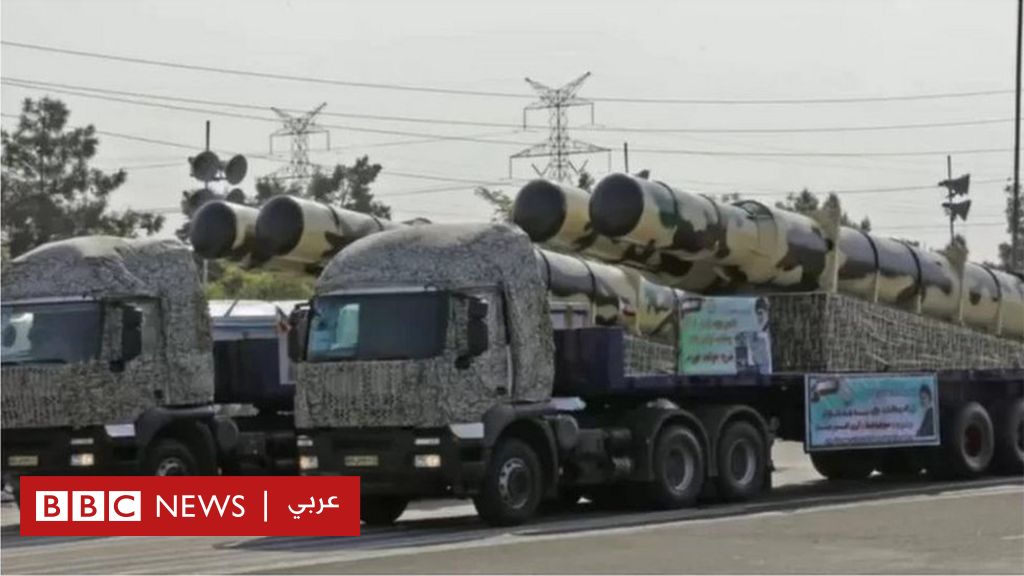Iran developed its ballistic missiles despite signing the nuclear deal in 2015
Iran claims to have developed a hypersonic missile capable of penetrating all defense systems.
The speed of this missile exceeds five times the speed of conventional ballistic missiles, according to the commander of the Iranian Revolutionary Guard Aerospace Force, Amir Ali Hajizadeh.
General Hajizadeh said: “This hypersonic ballistic missile was developed to intercept air defense shields. It will be able to penetrate all missile defense systems.”
The Iranian general added that he believed it would take decades to develop defense systems capable of intercepting this missile, “which targets the enemy’s anti-missile systems, and represents a great leap forward in the missile field.”
Hypersonic missiles can fly low, as can their maneuverability, making them difficult to track and intercept.
But Western military experts say that “Iranians sometimes overestimate their military strength”. These experts rely on the lack of reports on hypersonic ballistic missile tests in Iran.
The Iranian announcement comes after Tehran admitted on Saturday that it sent drones to Russia, but added that it had done so before the war broke out in Ukraine.
A report published by the Washington Post on October 16 stated that Iran was preparing to send missiles to Russia, which Tehran denied, describing the report as “completely false”.
The Iranian announcement also comes at a time when talks to revive the 2015 nuclear deal, which Iran had reached with six major powers – Britain, China, France, Germany, Russia and the United States – and which it envisages the loosening of sanctions for Iran in exchange for guarantees, are stalled, on the other hand, will not develop a nuclear weapon.
Iran has repeatedly denied its intention to establish a nuclear arsenal. But the nuclear deal collapsed after the US pulled out of it in a way that caused the party in 2018 during President Donald Trump’s tenure.
The Iranian announcement of the hypersonic missile also comes after the announcement on the fifth of this month of the successful test launch of a missile capable of carrying satellites into space, just three months after the launch of a satellite with Russian assistance.
On March 5, the US government imposed sanctions on Iranian missile-related activities. Washington said at the time that those sanctions came after “an Iranian missile attack on Erbil in Iraq, as well as missile attacks launched by Iranian delegates against Saudi Arabia and the United Arab Emirates.”
And yesterday, Wednesday, Iran warned its neighbors, including Saudi Arabia, that it could take revenge against the steps that seek to destabilize it, amid the demonstrations raging in Iran since the killing of the young woman, Mahsa Amini, while she was detained by the moral police.


